|
So students have their Singles Manifesto assignments coming due, so this week was the session where they could peer review each other’s week (I’m primarily a writing instructor, so peer review is a mainstay in my pedagogy). I’m choosing to take this week’s posting to reflect on things midstream, as it was the midpoint of the semester, and hence, midterm week.
Halfway through each course, I solicit feedback from my students as to what they like about the course, as well as what could be improve. Since this is a course that comes from my soul in ways my writing courses don’t, and this is my first time teaching it, I was particularly anxious to hear the feedback. Some positive remarks I got were: “I like the writing assignments because it feels like a journal about my singlehood journey…I like that we discuss positive ways to view singlehood.” Quite a few liked the assignments where they go to a restaurant and movie theater solo (“these activities…can potentially help students overcome insecurities of being single or alone”). I’m not a big lecturer in my teaching style, so our sessions consist of writing exercise, small-group discussion, and whole-group discussion. Students appreciate that. But, of course, I’m always looking to spice things up. One student suggested stating a question and students offering their opinions, much like a Socratic seminar. I did that quite a bit in my Honors Composition course last semester, and we had some pretty passionate discussions. I’m thinking that would be a great thing for future readings, particularly when they come from Happy Singlehood. A couple of students suggested more discussion about popular culture, which is our next unit J. Another suggested discussing the sex lives of single adults, which is very valid. Perhaps a student question can lend itself to it, and maybe in the course syllabus, I can put a disclaimer, “We will discuss sex in the course.” In the first assignment, I might have as a guiding question, “If you have sexual needs, how will you get them met?” Of course, students don’t have to answer it; it’s just a point of discussion. They are college students, but our administration is very conservative, so I have to be careful. Something to reflect on. Some ideas: show an episode of a matrimaniacal TV show (The Wonder Years is the first one that comes to mind, mostly because I already have DVDs of all the seasons and Wi-fi at my school doesn’t allow for YouTube or Netflix viewing; there’s also The Simpsons episode where Marge tries to promote a “Families Come First” tax initiative). Maybe guest speakers? It’s a one-credit, one-hour a week course so, sadly, I’m limited in the things I can really do with it. But, if/when I design this as an online course for purchase (or maybe a face-to-face course), who knows what can be done? More to come! We’re off this upcoming week (spring break is a nice perk of my profession), so we’ll see you in two weeks!
0 Comments
For this week, students read Chapter 3, “Social Defiance,” of Elyakim’s book. After a quiz (“What ideas from Chapter 3 resonated with you?”) and freewrite (“How can the material in the chapter benefit married couples?”, we discussed how we might overcome some of the ways the system is set up to marginalize singles. We had an interesting discussion of “discrimination” vs. “marginalization” as relates to relationship status. Mary brought up the idea that couples exclude singles from their gathering is small potatoes compared to laws. Her quiz, in which she reacted to it, suggested a passion for wanting to change some of the laws. I’m looking forward to our assignment later in the semester where students advocate for changes to policies that favor the married.
Tammy brought up that having a positive attitude about yourself as a single can actually change people’s perceptions. I brought up how whenever someone asks whether I’m married, I say “I’m happily solo.” If you compare it with “no,” the former conveys a position of confidence in one’s singlehood in the face of a potential singlist/matrimaniacal comment. I’ll say “I’m happily solo,” or “I’m in a relationship with myself.” Most of the time, people appear to respect that, and I get a look of admiration or two. Like the “childfree by choice” response, these few words contain several implicit messages: 1) I’m solo (which I think sounds more powerful than “single”); 2) I’m happy that way; 3) I like me; and 4) I’m not looking to be set up. It’s empowering. (Part of this paragraph is taken from my upcoming book.) We discussed “amatonormativity” in more detail, which is present in college students. Mary lamented about how a lot of the time, when someone couples up, that person forgets all about their friends. I remember having that same complaint about one of my best friends in high school when he got together with a girlfriend (now his wife). It’s a bummer, but one of the pieces of advice I give to readers when they couple up is not to abandon their single friends. If the romance dies, they will need their single friends to help them “reacclimate” to single life again. However, while they’re coupled up, the best thing one can do is find new single friends, or, even better, to enjoy their own company. That’s the impetus behind the Solo Dining and Solo Cinema assignments. This was the week students went to the movies solo, and reactions were mixed. Some enjoyed the experience, feeling that it was just like being at home. A couple of students felt liberated that they didn’t have to wait for a partner/friend to see a movie they really wanted to see. A good realization, indeed! Two students saw The Photograph, a new romantic drama with Issa Rae, and they felt alone because the audience consisted primarily of couples. When (not if) I do this assignment in the future, I might advise against seeing a romance movie, particularly as I tear them down quite a bit in my work. It’s a learning curve for me as well. So February 15, the day after Valentine’s Day, is known as Singles Awareness Day. I renamed it Singles Empowerment Day because the acronym for the former is just not cool. Once again, I woke to Chester on my stomach. On Saturdays, I typically get up at around 7 or 8. I was eager to work off those V-Day carbs I took in Friday night, so I stretched and went to the gym for my run. Normally, I prefer to run outside, but with the 28-degree weather, as Bartleby would say, “I prefer not to.”
After my run, I headed over to the Food Lion for some of that half-price V-Day candy. I got the last chocolate on the rack, a bag of Lindt’s White Chocolate Truffles. From there, I headed home and graded topic proposals for my Written Communication II classes’ research proposals, after which I got my monthly massage to soothe my tight muscles. After this, I send grades to the students in my Blogging course, as well as the comments they’re required to provide on others’ blogs. I was very happy to see students engaging with each others’ blogs. After this, I watched an episode of Better Call Saul and worked on my book for a C50, as Christina would call it. That’s a fifty-minute writing session. Nicole’s been providing some kickass edits on my book, and she guided me toward expanding some areas and citing more of Bella’s work in my concepts (you’ll have to read to find out). After my session, I took a powernap and picked up my close friend Maggie to see a Grateful Dead tribute band called Suggesting Rhythm in Richmond. For that experience, you’ll need to read my blog on my other site. All I’ll say here is that it was a kickass time. I got home at around 1 a.m., watched another Better Call Saul episode, and crashed out with Chester on my stomach. It was a great day to be single! Chester typically starts climbing into bed, headbutting me, and licking my face at 4:30 every morning to get me to give me treats, and today was no exception. Once he ate his treats, he was on my stomach until my alarm went off at 5:30. Ever since I started writing my book, I’ve been getting up at 5:30 every morning to write. Nicole’s my kickass rock star editor, and she sent me Chapter 2 with a bunch of edits. I spent 50 minutes hitting “Accept” on her “Track Changes,” modifying some of her words, and making notes for new things to include. After the 50 minutes were up, I had my usual weekday breakfast of three eggs over easy, two slices of turkey bacon, and a clementine while I beta-read a chapter of my friend David’s memoir as well as a selection of a recent Amazon find, Kate Bolick’s Spinster. After this, it was off to work. When I arrived, I graded a bunch of essays from my Composition 2 course. I’ve been theming these courses around Marriage and Singlehood for the past three semesters, and the first essays was an answer to the question, “Would You Rather Be Married or Single at the Age of 30?” The majority of the students argue for marriage, but the more thoughtful ones seem to gravitate toward singlehood, and I read one essay from a smart but reserved young man (not unlike myself) whose essays seemed to indicate a leaning toward aromanticism. I’m debating whether or not to bring that up to him, but I’m thinking he either knows or he probably should find that one out for himself, like I did. On Fridays, my hours start at 9:30, and they were spent grading, putting my course materials up for next week’s class sessions, and writing my How to be Single and Happy course blog. In two hours, I saw two students: one who sought assistance for her topic proposal for my Composition 2 course, and another in my Technical Communication course who completely missed the point of the first assignment, a Routine/Positive Business Letter. I told him to come to my office, and I gave him a second try at it for reduced credit. My hours ended at 11:30, and it was lunchtime. Salmon salad and a bag of Skinny Pop, followed by a quick power snooze at my desk. 12:30 came around, and normally, I teach afternoon classes, but our school was having a conference our students were required to attend. I had ushering duties for the 1:00 session, and I arrived early to help out. Friday afternoons are the most sparsely attended of classes, and this talk was no exception, so not much help was needed ushering. The moderator for the session announced that the remaining workshops would be cancelled for VD (how sweet!). Part of my job included turning away the students who had shown up for the 2:00 session, and some were annoyed at having come down for it. I was smart enough to announce it to my classes via Blackboard in order to fend off any anger to come on Monday. Since I hadn’t counted on a session being cancelled and didn’t have a Plan B for my 2:00 class, I took the opportunity to duck out at 2. From there, I went to Planet Fitness for a light cardio/ab session (Fridays are typically my rest days from the gym, but I since I planned on cheating with wings and VD candy, I figure some sort of exercise was in order). And then it was time for my Second Annual VD Solo Hooter’s Trip (that sounds so wrong). For the last two years, on Valentine’s Day, Hooter’s has a deal where if you bring in a picture of your ex and shred it, you get ten free boneless wings with the purchase of ten wings. DISCLAIMER: I don’t dig the concept behind Hooter’s. I think young women walking around in scantily clad outfits is degrading, and I’ve had better wings. That being said, I like their salute to singledom, and I will support them on that day. Plus, I like free food. After my workout, I pulled into a packed parking lot, and upon telling the hostess I was “Solo,” she enthusiastically belted, “Alright!” She seated me in a booth, and I saw a variety of diners. Some couples (as per my assumption of a man and a woman sitting together, although I could be wrong), some solo diners, and a group of women (all on their phones). When I ripped up my picture, I asked my waitress, Stasi, if I was the first one to do it. Apparently, seven of her other customers had, and other waitresses had several people do it. And it wasn’t even dark! I heard about a special Burger King was offering where if you brought a box of stuff from a past relationship and gave it to them, you got a free burger. Sadly, the dude at the counter looked lost when I asked him, so I guess Newport News doesn’t participate in that one. Just urban, singles-friendly environments. After a quick errand to stock up on Valentine’s Day treats for Chester and return some bicycle shorts, I went home and was greeting by Chester’s usual jumping on the leg. At that point, all human contact ceased (save for posting my blog on the CoSPers, Happy Singlehood, and A Single Serving Podcast). The rest of the night revolved around finishing up Season 2 of Sex Education, a surprisingly singles-friendly, ace-friendly show for a setting in which everybody seems to be romancing or hooking up. But I’d been looking forward to Season 4 of Better Call Saul to come on Netflix for about a year and a half, and tonight was the night I’d kick off with it. And I got to enjoy those boneless wings, some pizza I had stored in the fridge, and some Valentine’s Day candy I had bought for me; I’m so glad they make packages for one. It shows the companies are starting to take singlehood seriously. Below are some pictures from my "enchanted evening": Oh, and two side notes involving me spreading the pro-single message:
Valentine’s Day was a great day to spread that message. On February 13, I was grocery shopping in Wal-Mart, and I saw a handful of dudes with flowers in their hands, and I thought about how liberating it was not to be under pressure to “perform” like that. When I was coupled on Valentine’s Day, the pressure was on to get the flowers, the candy, the evening out. I remember dating a lady named Tracy (name changed) and getting her a nice wine and cheese spread, and she got mad that she didn’t get flowers. Seriously, that’s the thing she looks at? And that’s what society buys into with respect to romance, relationships, and normalcy? I’d rather be abnormal and happy if that’s the definition we’re going by. Today’s social media feeds were a nice mix of seemingly happy couples and pro-single postings, but would I rather look good for strangers on social media, or would I rather be relaxed? To me, the answer is pretty damn obvious. For this week, students read Chapter 2 in Elyakim’s book; this chapter is entitled "Happy Singlehood in Old Age." Sadly, I committed the error of leaving my copy at home, so it is now in my office for the remainder of the semester.
We started off this week’s session by freewriting comebacks to the question, “Who will take care of you when you get old?” The responses ranged from Mary’s “me!” to Karen’s “I can develop relationships with friends and family.” Mary, who handed in her freewrite, mentioned staying in a NICE nursing home as opposed to some of those shadier places. Being single definitely gives you the opportunities to be street-savvy because you’re not relying on another partner to help you with that. Some of us are naturally wired toward this, and others develop it through trial and error. I then shared with the class about how singles have wider networks of friends because they use their social energy to maintain those networks; I relayed the story of my close platonic friend, Maggie, and how we agree to check in with each other every couple of days just to make sure we’re alive. One of the challenges of singlehood is if you die, will someone be able to find your body? And if you have a pet, like I do, what would that challenge be? My fear is that if something happened, how would this affect my cat/son Chester? We then transitioned into student sharing of their solo dining experiences. A couple of people felt self-conscious doing it; one person, Michael, dined at a Caribbean café near campus and was concerned that people might be looking at him. But he distracted himself with his phone. I employ this strategy, as did many others. Another student, Warren, was a newbie to dining solo; he went to Chipotle and watched Black Mirror on his phone while he ate. He indicated he was unsure, but once he did it, he enjoyed the solitude. Another student, Sara, went to an Olive Garden, and was asked by the waitress, “Just you?” in a tone that seemed a little pitying. The waitress was elderly, and my theory is that since she’s from a different generation, dining solo doesn’t coincide with the values with which she’s been raised. The waitress apparently said the same thing to her friend, who was seated at a table on the other end of the restaurant (I told them they could enter the restaurant with a buddy if they’re concerned about safety). I’m also guessing a more “upscale” place like the Olive Garden doesn’t see a lot of solo diner, particularly not here in the tradition-minded South. Other than that, she enjoyed her experience. I suspect more people would enjoy doing things solo if it weren’t so stigmatized. Karen ate in the university’s café, an experience she did not enjoy. We speculated the experience might have been different for her had she been off-campus, away from people she knows. We also discussed how dining solo gives you a lot more flexibility than dining with others. When I enter a restaurant, I want to leave eventually. And, as an introvert, when I dine with a group, I have a certain “water level” I can reach before I need to leave (usually an hour to two hours). But, with a group, conversations tend to go on, and leaving becomes a challenge. I love being part of good conversations with people I care about, but there are always drawbacks. When I dine solo, my book is my company. At the beginning of class, I passed around Bella’s How We Live Now and a recent Amazon order, I Didn’t Work This Hard Just to Get Married: Successful Single Black Women Speak Out. A student, Tammy, asked to borrow Bella’s book so she could better navigate her living situation: having a roommate who’s thirty-two, way older than her. I typically don’t lone out those books, but I felt moved to do the right thing as long as Tammy takes care of it and returns it by the end of the semester. Upon further thinking, it is the right thing, because I’m spreading Bella’s work. And it’s not even for a school assignment; this student actually wants to learn and internalize Bella’s message. It’s my duty to make that happen. That’s what this class is about. I started out today’s session by explaining the first assignment, the Singlehood Manifesto. For this assignment, students will write out a plan on how they will live their best lives as singletons. I then presented and differentiated the following terms:
Students had finished the first chapter of Elyakim’s book. They then broke into pairs to discuss the links between singlehood and: 1) education; 2) popular culture; 3) religion; 4) immigration; and 5) urbanization. The most dynamic part of the discussion came from popular culture. Samantha brought up the transition from those 1980s family-oriented sitcoms (The Cosby Show, Family Ties) to more liberalized shows that feature singletons (Will and Grace, Friends, Sex and the City). Samantha also brought up how Will and Grace both partnered up, and that led me to do my “Devil’s advocate” thing and discuss how in shows like Friends, Sex and the City, and the Big Bang Theory, everyone coupled up. Mary countered that while true, the characters looked at the relationships not as their whole being, but as part of the larger spectrum of their lives. You could actually make that argument that those shows could represent a transition into more singles-friendly programming. Eventually, I’d like to see a series finale where the main character is happily solo, sipping a pina colada staring at a sunset. As I just wrote this, I thought House ended the same way, but upon researching, I found out House rides with his “bro,” Wilson, on a motorcycle, touring the country. #digthat Other topics to come up included Elyakim’s finding that higher levels of education correlated with the abandonment of romantic relationship formation. This tied into some discussion of intersectionality; Maureen brought up that some men can feel emasculated by women making higher incomes and being educated. And here, I thought we had moved beyond such outdated patriarchal notions. How quixotic am I… During the religion portion, Tammy discussed how a pastor in a church had tried putting together a singles group with the sole purpose of having single parishioners “ride the relationship escalator.” I brought up how Paul, Jeremiah, and Jesus were all single, and if they had been married, they might have not accomplished the things they did. Even Paul, while he extolled the benefits of marriage for some, he even stated that for others, singlehood might be best. And his quote: “Sometimes I wish everyone were single like me – a simpler life in many ways” (1 Corinthians 7:8), can be used on any matrimaniac who uses religion to preach marriage. Urbanization came up as well, and logically, it made sense to everyone that urban environments would be more welcoming to singles because there are more people to meet, more folks to date, so why bother with marriage? This is the case in the United States, but in India, it’s a different story, and I have to thank Ketaki Chowhaki for recommending this film. Students, if you’re reading, watch this trailer for Bachelor Girls; it will open your eyes. Immigration came up, and Elyakim’s finding that immigrants can face obstacles to romance due to cultural barriers and the craziness that can come with trying to negotiate the red tape of moving to a new country resonated. I shared the story of a colleague who was separated from his wife due to finding a teaching job here in the United States. This week’s assignments had students writing short biographies of adult singletons in their lives. The majority of their subjects were happy as singles, even though a couple of them reported occasionally feeling lonely. That internalized singlism, which a lot of us feel, may be the result of social conditioning. A couple of subjects mentioned feeling external pressure to marry (from friends, families) but don’t seem to let that phase them (I wish I could say the same for those who do marry because of that pressure). One person also mentioned that the interview opened up their eyes to the societal pressure given to those who do not marry (matrimania in real life). The highlight for me: when Mary mentioned that while she never felt pressure to couple up, she understood how others might be. This is why I do this kind of work. So this semester, I was lucky in that I was granted the privilege by my university to teach a one-credit course on How to be Single and Happy. I was pleasantly surprised to see that eleven students signed up for the course, and they are a bright, engaged bunch indeed! Over the next three months, I plan to be providing a blog almost every week on what we discuss in class.
This past week, we began by discussing the first chapter of Bella’s Singled Out, as read by the students. One person, Mary, speculated whether a couple that makes the decisions as to where to go out to eat is actually singlism, or if it’s just the couple being rude and commanding. And is that couple really worth hanging out with? After all, as singles, we generally do have a choice as to who we spend our time with? It led to a thought as to whether such everyday slights might be a reason as to why some people get into/stay in bad relationships. They don’t want to be marginalized. One student, Michael, made an interesting comment that not everybody necessarily wants to be single, so those people who are marginalized may make bad relationship decisions. Note to self: start off next week’s class with the definitions of single by choice and single by circumstance. I’ll also have to define legally single vs. socially single, since I also gave an assignment for students to interview someone who has not married. Michael asked if the person they interviewed could be “in a relationship,” to which I said, “Yes.” Domestic partnerships definitely deserve equal weight in the eyes of the law, as well as that of social acceptability. I also have to call myself out. Mary also pointed out that the potential interview question, which I gave as a guide, “why have you never be married” could be perceived as offensive. I’ve actually called people out for asking that of me, so I have to practice what I’m preaching. Good job, Mary! Students brought paragraphs to class about instances of singlism and matrimania they had observed or experienced. Mary brought up the TV show Say Yes to the Dress, which is one of countless shows that sensationalize weddings (I YouTubed a seven-minute clip and felt the need for a nice long shower after watching a minute of it and turning it off ). We brought up that a wedding can easily lose its intimacy by being publicized. Tammy was asked about “her children” and “a boyfriend” by the seven-year-old Girl Scouts she supervised. She did concede that to a seven-year-old, every adult looks “old.” In addition, the only adults a child from a two-parent home probably only sees is married, but that’s why we need to start teaching kids it’s okay not to couple up. Someone (I forget who, but if you’re reading, feel free to tell me and I’ll include your name) brought up how Disney movies like The Princess and the Frog teach children the myth of “happily ever after”, but Warren brought up how more progressive Disney films Brave and Moana did not feature love interests. #digit And, finally, came the “comeback sharing.” I featured the following on our projector screen: Come up with a “comeback” with the following exchange: Friend/Family Member: Do you have a boyfriend/girlfriend? Me: No. Pick one of the responses: a) Friend/Family member: Awwwww. b) Friend/Family member: What’s wrong with you? c) Friend/Family member: You better get on that. The responses: William: Everything. Everything’s wrong with me. (Love the sarcasm). Michelle: What’s wrong with you? (Love the snark.) Monique: I’m focusing on my career goals. (Love the straightforwardness). Next week, we’ll get to hear the interviews with the singletons in our students’ lives. |
AuthorMy name is Craig. I'm an educator, writer, and unapologetic singleton. When not reading, writing, or teaching, I enjoy hiking, running, watching movies, going to concerts, spending time with friends, and playing with my cat/son, Chester. Archives
July 2024
Categories |
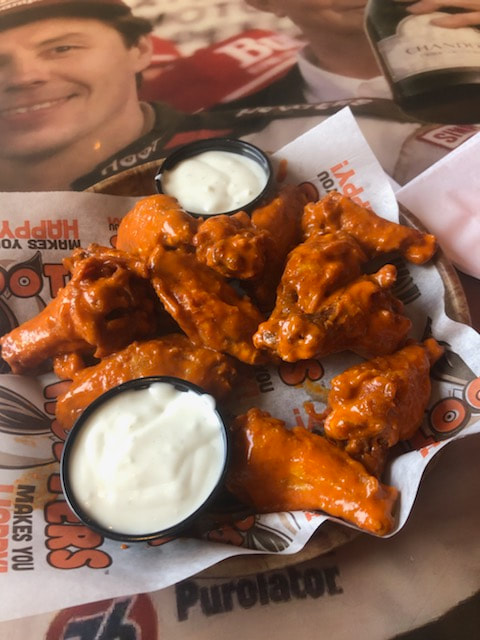
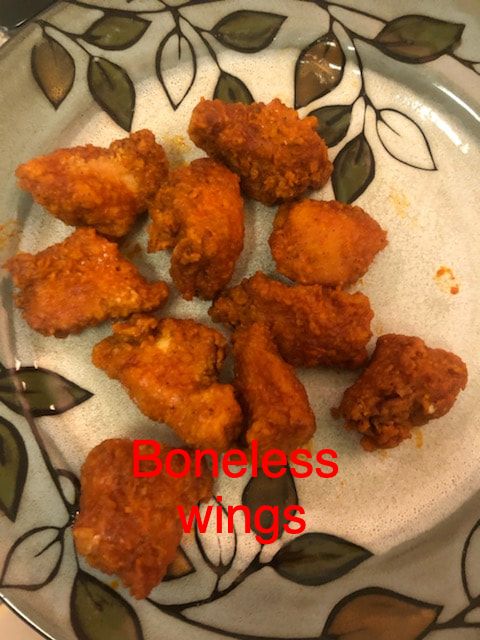
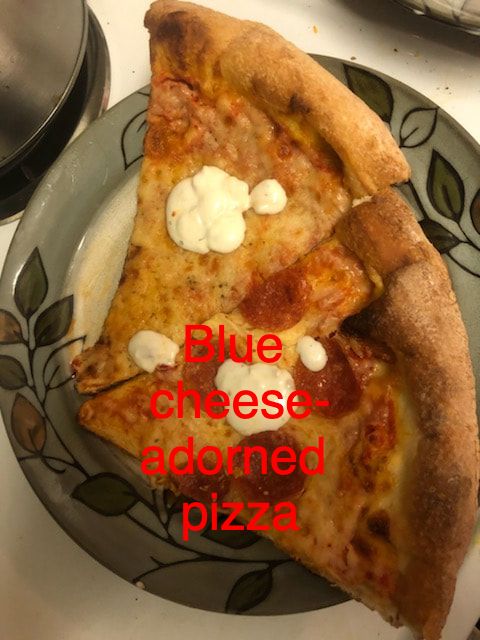
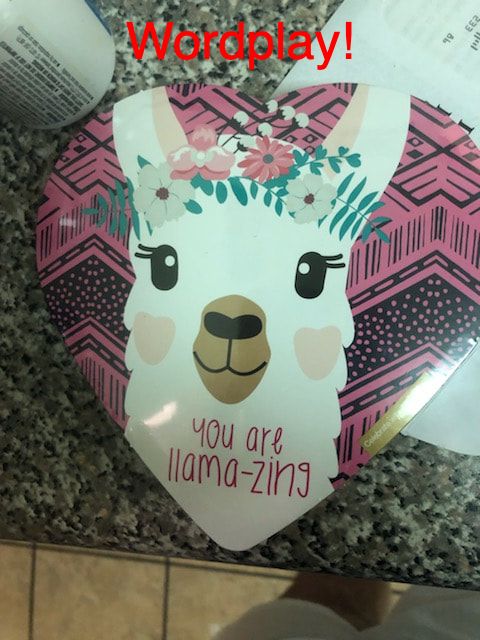
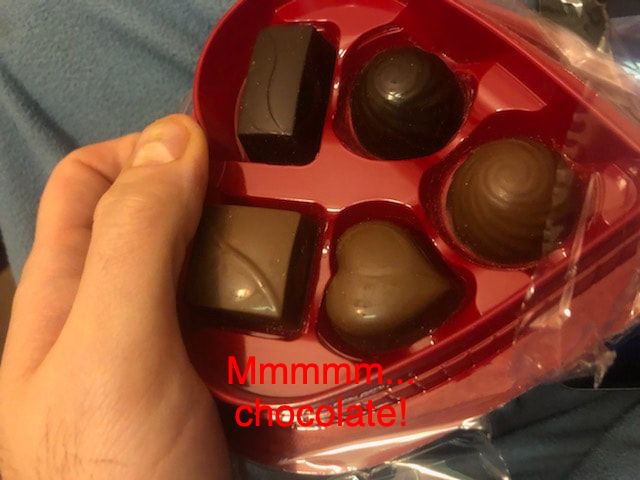
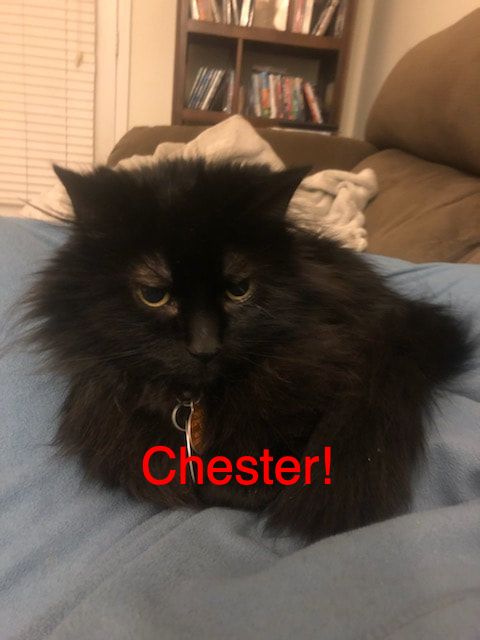
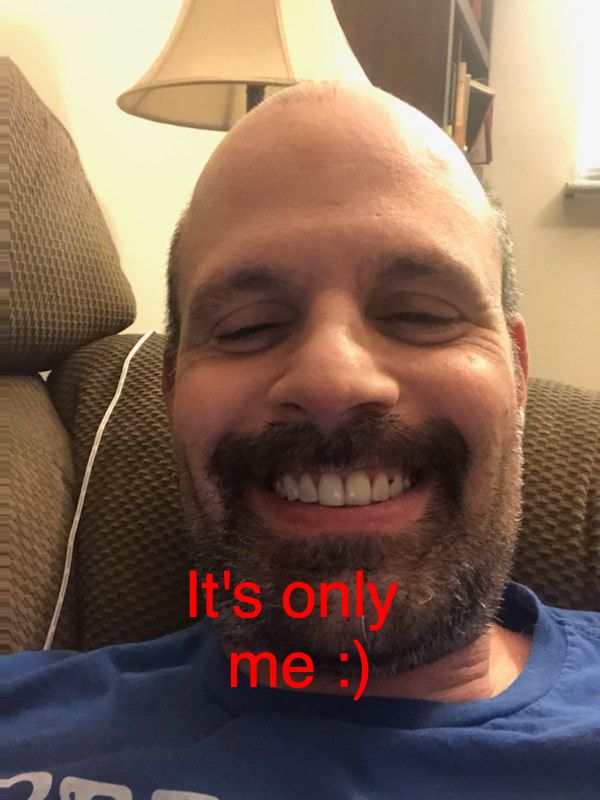
 RSS Feed
RSS Feed
